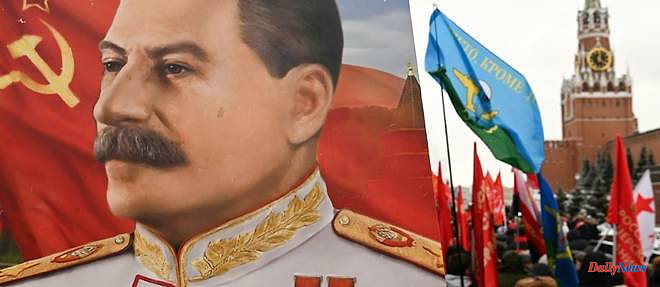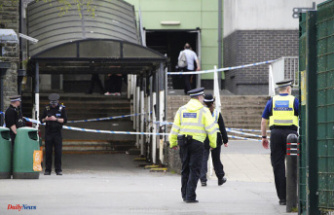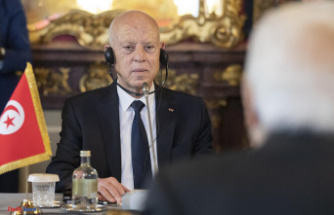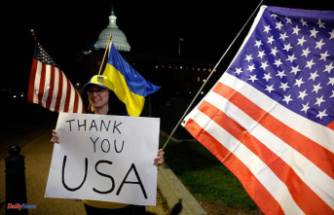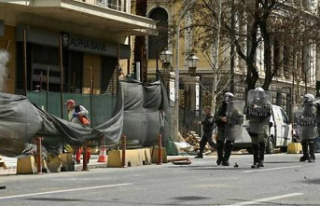"Comrade Stalin", dead 70 years ago, competent despot or bloodthirsty monster? In Moscow, as in the rest of Russia, the memory of the dictator is ambivalent and particularly relevant as the conflict in Ukraine rages.
Vladimir Putin's offensive is indeed denounced in kyiv and in the West as a survival of imperialism led by Stalin. And the accelerated crackdown on Kremlin critics in Russia reminds others of Soviet methods.
On Sunday morning, more than 1,000 admirers of Stalin gathered in Moscow on Red Square, AFP noted, to lay thousands of flowers on his grave located nearby, within the walls of the Kremlin.
Some carried red flags of the USSR, others portraits of the ruthless mustachioed leader born in Georgia in 1878 under the name of Iossif Djougashvili.
"Without Stalin's return to Russia, we Russians and other indigenous peoples of Russia will not survive," Vladimir Kvatchkov, 74, a retired military intelligence (GRU) colonel, told AFP. .
“We would be happy if such a leader came back”, abounds Yuri, another retiree who came to pay homage to the “little father of the peoples”, as Soviet propaganda called him.
Stalin, who came to power in the late 1920s and died on March 5, 1953, transformed the USSR into a vast totalitarian state, ordering a cult of his own personality, the execution of hundreds of thousands of people and the dispatch of millions more in gulag camps.
But some Russians still defend it. They claim that he made the USSR a superpower and single-handedly -- although many historians dispute this -- to defeat Hitler in 1945. A victory today celebrated with belligerent pomp in Russia.
In a rhetoric referring to that of the Stalinist era, the Russian power is also increasingly calling for the prosecution of "traitors" or "foreign agents" who oppose the conflict in Ukraine.
Unlike the creator of the USSR, Lenin, whose statues are still present in the cities of the country, the authorities have not undertaken, for the time being, to reinstall monuments to Stalin, dismantled after his death and the beginning of a policy of "de-Stalinization".
Nevertheless, across Russia, they do not oppose groups of militants, often linked to the Communist Party, which have indeed inaugurated in recent years some monuments to the glory of the comrade.
At the beginning of February, a bust of Stalin was notably erected in Volgograd, former Stalingrad, to celebrate the decisive Soviet victory in this city.
"People have different views of Stalin," notes Piotr Sokolov, a retired history professor interviewed in Moscow on Saturday by AFP.
"It's mostly older people who see it in a good light, as if they've forgotten the repressions. Young people don't know it well and middle-aged people are divided," he sums up.
The Kremlin does not deny the Soviet repressions but minimizes them in schools and the public media, presenting them as a tragedy without real culprit. At the same time, he loudly glorifies the geopolitical and military power of the USSR.
As a sign of this desire to promote a positive image of the Soviet Union, the authorities dissolved Memorial at the end of 2021, an NGO which fought to transmit the memory of the repressions.
But, in the private sphere, some do not forget them.
"My great-grandmother did not escape repression in 1945. She was imprisoned until Stalin's death," Tatiana Kouznetsova, a 25-year-old scientist, told AFP on a street in Moscow.
"For the 70 years (of his death), we don't celebrate anything, we remember the repressions. And, of course, it's horrible to see what is happening today."
video-bur/ia
03/05/2023 15:51:46 - Moscow (AFP) - © 2023 AFP

